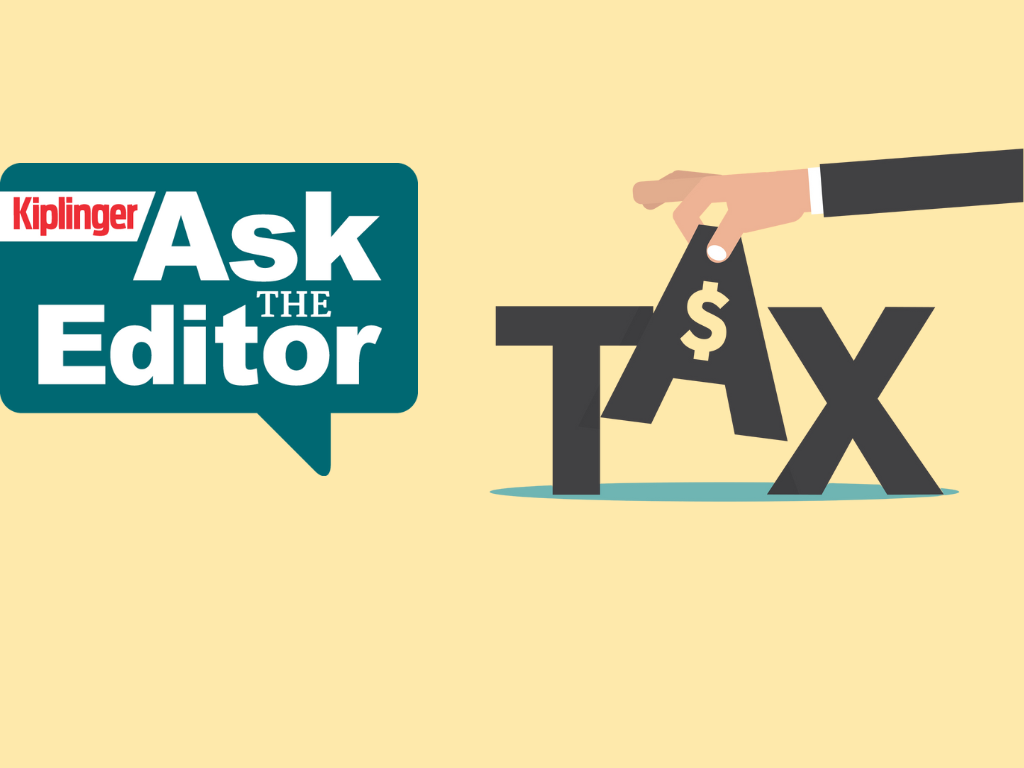Watch Out for High-Priced Tech Stocks
The valuations on some of these names are downright scary.

Profit and prosper with the best of Kiplinger's advice on investing, taxes, retirement, personal finance and much more. Delivered daily. Enter your email in the box and click Sign Me Up.
You are now subscribed
Your newsletter sign-up was successful
Want to add more newsletters?

Delivered daily
Kiplinger Today
Profit and prosper with the best of Kiplinger's advice on investing, taxes, retirement, personal finance and much more delivered daily. Smart money moves start here.

Sent five days a week
Kiplinger A Step Ahead
Get practical help to make better financial decisions in your everyday life, from spending to savings on top deals.

Delivered daily
Kiplinger Closing Bell
Get today's biggest financial and investing headlines delivered to your inbox every day the U.S. stock market is open.

Sent twice a week
Kiplinger Adviser Intel
Financial pros across the country share best practices and fresh tactics to preserve and grow your wealth.

Delivered weekly
Kiplinger Tax Tips
Trim your federal and state tax bills with practical tax-planning and tax-cutting strategies.

Sent twice a week
Kiplinger Retirement Tips
Your twice-a-week guide to planning and enjoying a financially secure and richly rewarding retirement

Sent bimonthly.
Kiplinger Adviser Angle
Insights for advisers, wealth managers and other financial professionals.

Sent twice a week
Kiplinger Investing Weekly
Your twice-a-week roundup of promising stocks, funds, companies and industries you should consider, ones you should avoid, and why.

Sent weekly for six weeks
Kiplinger Invest for Retirement
Your step-by-step six-part series on how to invest for retirement, from devising a successful strategy to exactly which investments to choose.
Who could forget the late 1990s? Tech stocks sold for 100 times earnings and more, many companies had no profits, and some had no revenues. We all know how that party ended.
To say we're seeing a rerun of that lunacy today would be a gross overstatement. Most tech stocks are reasonably priced; in my view, many look attractive. But the valuations on a growing number of Internet stocks are just as nutty as they were in the '90s. These are stocks with price-earnings ratios of 50, 60 or even more than 100.
Just as in the '90s, most of these companies are working with promising, cutting-edge technologies. Some analysts project that their earnings will grow rapidly and long enough to justify the current high price-earnings ratios. But the odds of these companies growing into their stretched valuations are slim.
From just $107.88 $24.99 for Kiplinger Personal Finance
Become a smarter, better informed investor. Subscribe from just $107.88 $24.99, plus get up to 4 Special Issues

Sign up for Kiplinger’s Free Newsletters
Profit and prosper with the best of expert advice on investing, taxes, retirement, personal finance and more - straight to your e-mail.
Profit and prosper with the best of expert advice - straight to your e-mail.
Consider LinkedIn (symbol LNKD). It's a great company for job hunting and networking. It dominates its niche — and may well continue to for years to come. But its exorbitant share price already reflects a ton of wonderful growth. At $243.00, LinkedIn trades at 116 times the average of analysts' estimates for the coming 12 months. That price is also 23 times current sales. (All prices and related data are as of October 28.)
At the peak of the tech bubble, in March 2000, longtime bull Jeremy Siegel wrote a famous and uncharacteristically bearish piece for the Wall Street Journal. "History has shown that whenever companies, no matter how great, get priced above 50 to 60 times earnings, buyer beware," wrote Siegel, a finance professor at the University of Pennsylvania's Wharton School and a columnist for Kiplinger's Personal Finance magazine.
But here we go again — at least with some of today's sexiest companies. Not all of them fall into groups that are commonly considered to be tech. Look at Tesla Motors (TSLA), the hot new maker of green cars (see Tesla Take Off). At $162.86, it trades at 150 times estimated earnings for the coming 12 months and 14 times sales. It could turn out to be a transformative company, but it'll have to do a whole lot of transforming to ever support its current price.
Young companies, of course, often lose money, especially capital-intensive start-ups, such as Tesla. You can't run a car-assembly factory in your garage on a credit card. But start-ups are, by definition, high-risk; there are plenty of opportunities for the wheels to come off before a new company matures.
Salesforce.com (CRM) is a fast-growing company that sells software and services that enable its customers to conduct business in the cloud. "Connect to your customers in a whole new way with our apps," the homepage promises. But at $53.49 a share, the stock trades at 140 times estimated earnings. The San Francisco-based business is promising; the stock price is outrageous.
Price-earnings ratios are a blunt tool for measuring value. They're far from perfect. For one thing, with cyclical companies — that is, companies that tend to rise and fall with the economic cycle — you typically want to buy when P/Es are high or even nonexistent (because the company is losing money) and sell when P/Es are low. But as a general rule, it makes sense for investors to start their search for value by looking at a stock's P/E.
Among the best-known stocks with a sky-high valuation is Amazon.com (AMZN). Publicly traded since 1997, the online retailer is beloved by both consumers and investors. Its shares, at $358.16, change hands at 90 times earnings.
Want some other examples? Facebook (FB) trades at 56 times earnings, Groupon (GRPN) at 46, Netflix (NFLX) at 77, Shutterfly (SFLY) at 101, WebMD Health (WBMD) at 56, and Zillow (Z) at 165. Outside of tech, Chipotle Mexican Grill (CMG) trades at 41 times earnings, and Live Nation Entertainment (LYV) at 293.
I'm not arguing that Tesla or LinkedIn or any of the others won't beat the odds and make money for investors. Some high-priced stocks are also profitable investments. But investing in such overpriced stocks is a sucker's bet.
Why do investors, particularly professionals, buy these stocks? A lot of the buying is driven by computers and is often based on momentum: You buy a stock that has risen, hoping it will rise a bit more before you unload it.
But individual investors shouldn't play the momentum game. Buying an overpriced stock and hoping to sell it to a greater fool is a dangerous game that almost always ends badly.
Steve Goldberg is an investment adviser in the Washington, D.C., area.
Profit and prosper with the best of Kiplinger's advice on investing, taxes, retirement, personal finance and much more. Delivered daily. Enter your email in the box and click Sign Me Up.

-
 Money Questions Couples Should Ask Before Combining Finances or Planning a Future Together
Money Questions Couples Should Ask Before Combining Finances or Planning a Future TogetherHonest financial conversations can reduce stress, strengthen trust and help couples align long-term goals.
-
 Ask the Tax Editor: IRAs
Ask the Tax Editor: IRAsAsk the Editor In this week's Ask the Editor Q&A, Joy Taylor answers questions on IRAs
-
 At-Fault States Where No-Fault Insurance Still Applies
At-Fault States Where No-Fault Insurance Still AppliesThink you live in an at-fault car insurance state? These four still have some tricky no-fault insurance laws you should know about.
-
 ESG Gives Russia the Cold Shoulder, Too
ESG Gives Russia the Cold Shoulder, TooESG MSCI jumped on the Russia dogpile this week, reducing the country's ESG government rating to the lowest possible level.
-
 Morningstar Fund Ratings Adopt a Stricter Curve
Morningstar Fund Ratings Adopt a Stricter Curveinvesting Morningstar is in the middle of revamping its fund analysts' methodology. Can they beat the indices?
-
 Market Timing: The Importance of Doing Nothing
Market Timing: The Importance of Doing NothingInvestor Psychology Investors, as a whole, actually earn less than the funds that they invest in. Here’s how to avoid that fate.
-
 Commission-Free Trades: A Bad Deal for Investors
Commission-Free Trades: A Bad Deal for Investorsinvesting Four of the biggest online brokers just cut their commissions to $0 per transaction. Be careful, or you could be a big loser.
-
 Vanguard Dividend Growth Reopens. Enter at Will.
Vanguard Dividend Growth Reopens. Enter at Will.investing Why you should consider investing in this terrific fund now.
-
 Health Care Stocks: Buy Them While They're Down
Health Care Stocks: Buy Them While They're Downinvesting Why this sector should outperform for years to come
-
 Buy Marijuana Stocks Now? You'd Have to Be Stoned.
Buy Marijuana Stocks Now? You'd Have to Be Stoned.stocks Don't let your investment dollars go to pot
-
 4 Valuable Lessons From the 10-Year Bull Market
4 Valuable Lessons From the 10-Year Bull MarketInvestor Psychology Anything can happen next, so you must be mentally prepared.